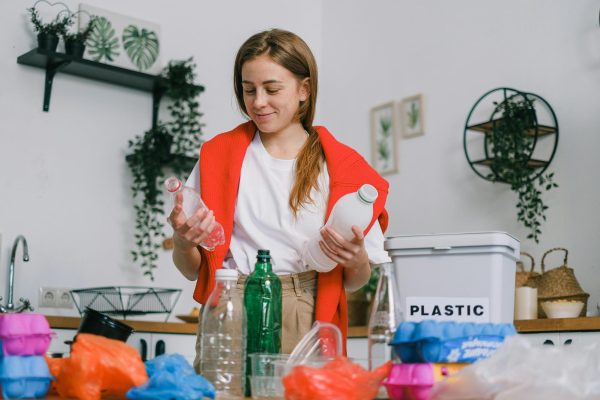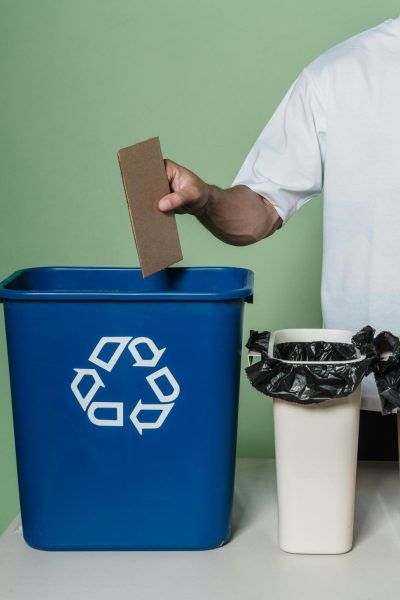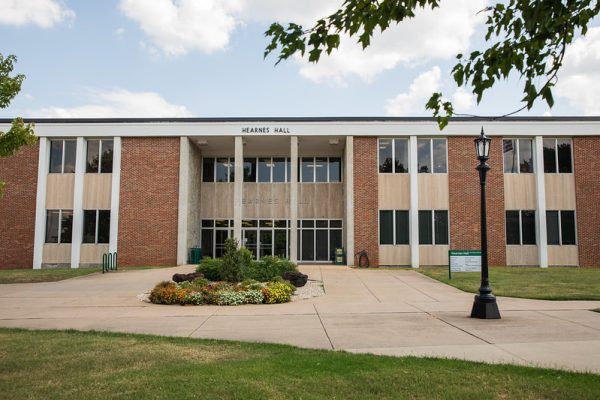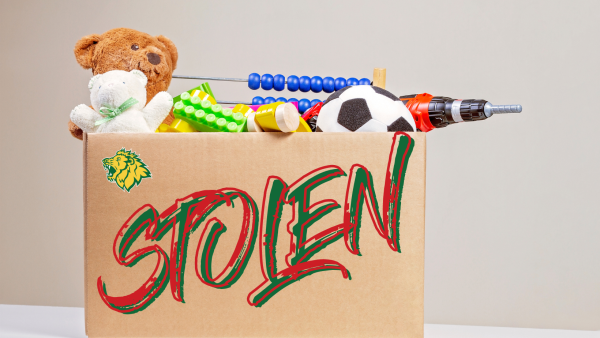COVID-19 makes impact on jobs
The COVID-19 pandemic has had an enormous effect on the job industry. The Labor Department reported that the unemployment rate dropped from 4.4% from 3.5% in March. A huge drop was seen in the food industry, seeing payrolls drop by 417,000.
“It is clear that the decrease in employment and hours and the increase in unemployment can be ascribed to effects of the illness and efforts to contain the virus,” the Labor Department said.
Luckily, there have been a big group of Americans who are considered “essential” employees and are able to continue their work.
J.D. Howard works at a part store in Marlow, Oklahoma. He is considered an essential employee and is grateful that he is able to work during this time.
“I love my job. I love getting up in the morning to go to work. I don’t know what I’d do if I had to stay home and not be able to go to work,” said Howard.
Howard attended Missouri Southern for a semester before moving back to his hometown of Marlow to work. He was offered the job at the part store after several months of working at a gas station.
“I’m a people person. The people who come into the store are blue collar folk who enjoy talking. Working in the public doesn’t feel like a job because we [the employees] have conversations with the customers and hear so many stories throughout the day.”
Howard was unsure if he would be able to work when people started to lose their jobs. He was not considered essential at first and was at the verge of having to stay home.
A lot of people who come into the part store are buying things they need for their cars that they are working on because they have nothing else to do. They are filling their time with other projects outside of work so they can stay busy said Howard.
Chassidy Dixon is another employee at the part store who is grateful for her job. She is a senior at Marlow High School and was worried about how the coronavirus would affect her life.
“School got cancelled and there were talks about the part store closing as well. I don’t necessarily need the job right now but I am preparing to go to college in the fall so it would be nice to save up some money during the summer,” said Dixon, “I was pretty scared that I would be out of a job with everything going on in the world.”
The part store has taken precautionary measures to keep both the employees and customers safe. All the employees are wearing masks and practicing social distancing. The owner has placed tables in front of the counter to keep customers at a distant from the employees said Howard.
“There are still people who walk around the table at the front counter to talk to us. My boss gets mad when they do, but it is a weird time where we have to stand six feet from each other. The people who come into the store like to talk, they are comfortable in the store. It is going to take some time to get used to, but it can get pretty hard trying to be safe while working in the public,” said Howard.
Hopefully the coronavirus will slow down soon so that everyone can get back to work. It is a strange time that we are living in and it is going to be nice when we can all gather together again said Dixon.
COVID-19 is not just affecting small towns in Oklahoma, but also closer to Missouri Southern. People are feeling the affect of the coronavirus in Joplin, Missouri with the job industry and the closure of the Missouri Southern campus.
The transition to the current online format is stressful enough for students at Southern. Yet, for those students who are considered “essential workers” outside of their classes, the stress overlaps with the health concerns of working with the public.
“I am concerned,” said Gia Oberley, junior sociology major, “Although we wear gloves and masks, many of our customers do not.”
Oberley works for a locally owned health-food store, an establishment that is considered essential. Yet, there was discussion of a possible closure if the situation called for it.
“The boss made it clear that if the threat level increased, the responsible thing to do would be to close entirely,” Oberley said.
The management and employees do everything they can to protect themselves and the customers, even it means conducting business in unorthodox ways.
“The first step she [the owner] took was to shut the front doors to the public and offer service through Drive-Thru only”, said Oberley, “She then made sure that all of her employees had masks and gloves. We also had weekly meetings to make sure that everyone was doing their part in staying safe and socially distancing themselves.”
The store remains busy, putting more stress on employees who now have to shop for the customers. By the time her shift is over, Oberley finds it difficult to focus on her schoolwork.
“I feel like I have been running myself ragged at work and coming home with no motivation or energy to work on my homework,” Oberley said, “Additionally, the lack of face to face interaction that we had before the transition makes it even more difficult to feel motivated to complete assignments.”
Aside from the stress caused by her job and the transition to online classes, Oberley helps care for her elderly father. She is concerned about being around him after working with the public, adding to the weight caused by this pandemic.
“I worry that I could pass something to him that I picked up from work,” she added.
The World Health Organization recommends that people take extreme measures to stay safe during the pandemic, especially for those working in the public. These include washing hands frequently, avoid touching the face, and maintain a distance between people.
Your donation will support the student journalists of Missouri Southern State University. Your contribution will allow us to purchase equipment and cover our annual website hosting costs.





























